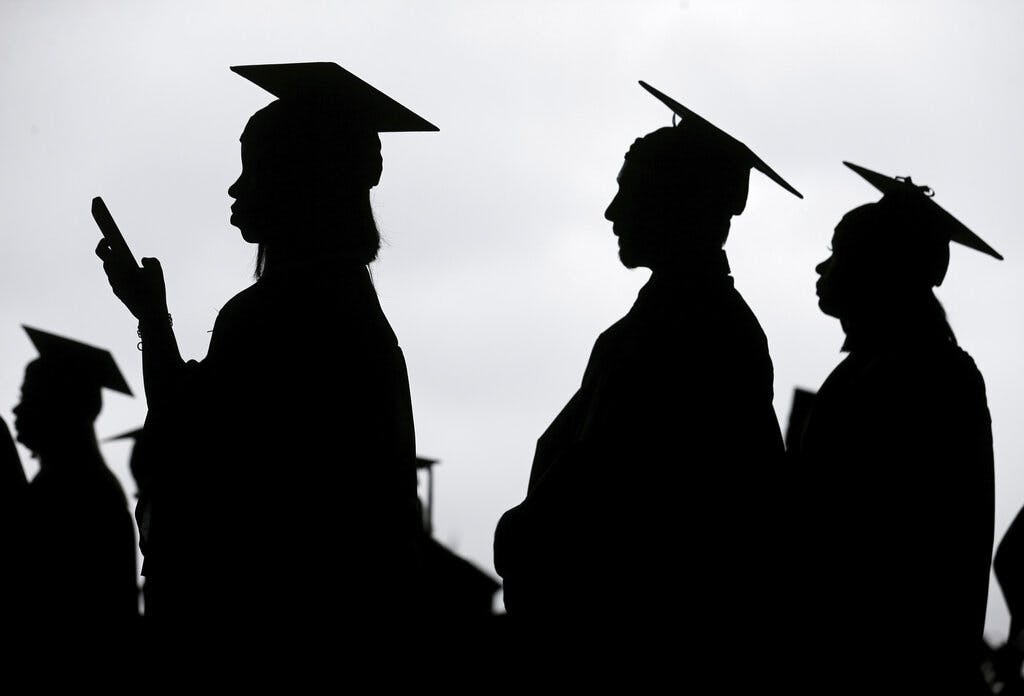Student Loan Forgiveness Plan Faces Delay as Legal Challenges Mount
During a hearing scheduled for Wednesday, a federal judge could force the Biden administration to halt its plan to forgive hundred of billions of dollars in student loan debt.

Biden administration officials continue to insist that student loan forgiveness is proceeding as planned, but the date which people can apply for the promised program has already been delayed as lawsuits over its legality continue to pile up.
So far, four federal lawsuits have been filed challenging the legality of President Biden’s plan. One of those lawsuits has already been thrown out, but another by six Republican-led states will face its first test during a hearing scheduled for Wednesday. Hearings in the two additional cases have yet to be scheduled.
When the plan was first announced in August, the Department of Education said borrowers could begin filing for relief in early October. But in a filing in the six states’ case, the department said no debt would be discharged before October 17. The federal judge hearing that case this week has the power to issue an injunction that would force the administration to delay the rollout even further.
The states of Nebraska, Arkansas, South Carolina, Iowa, Kansas and Missouri are claiming that Mr. Biden’s plan would lead to lost revenue to the states, as well as to a student loan service provider, MOHELA, based in Missouri. The states also argue that Mr. Biden lacks the authority to undertake such costly measures without the approval of Congress.
“The Biden Administration’s executive action to cancel student loan debt was not only unconstitutional, it will unfairly burden working class families and those who chose not to take out loans or have paid them off with even more economic woes,” said Missouri’s attorney general, Eric Schmitt. “The Biden Administration’s unlawful edict will only worsen inflation at a time when many Americans are struggling to get by.”
The White House maintains that 2003 legislation called the HEROES Act, which was initially passed to give veterans of the wars in Iraq and Afghanistan relief from student loan debt, gives it the authority to proceed with the program, which independent analysts have said could cost as much $1 trillion over the next decade. Mr. Biden’s plan would forgive up to $20,000 in debt for borrowers who earn less than $125,000 per year and continue a Covid-related moratorium on all payments through the end of the year, as well as dramatically expand income-based repayment programs.
The education department has already rolled back some aspects of the program in response to the intensifying legal scrutiny. Late last month, the department issued new guidance stating that as many as 4 million borrowers who owe private companies about $100 billion for their student loans would not be eligible for forgiveness after all. Those private companies, which would lose substantial income if the plan goes through, represented the most direct legal threat to the plan.
Separately from the states’ lawsuit, the debt-relief plan faces legal challenges from a conservative legal foundation, the Pacific Legal Foundation, which argues that one of its attorneys is being harmed because he faces a state tax burden because of the program. The White House swatted down that argument, however, by noting that anyone can opt out of the program for any reason. The foundation said it would amend the complaint in the coming days.
“Since Pacific Legal Foundation filed the case on Tuesday, the government has made two staggeringly large changes to the program via quiet revisions to a Department of Education website, which only serves to underscore the lawless nature of this program,” said an attorney at the foundation, Caleb Kruckenberg. “The government clearly had not considered the implications of the program for people like our plaintiff.”
The fourth lawsuit is by the attorney general of Arizona, Mark Brnovich, who is challenging the program on grounds similar to those used by the six Republican states. Mr. Brnovich said the president’s action, absent congressional approval, “is contrary to several recent United States Supreme Court decisions striking down federal agencies’ assertion of power never granted to them by Congress.”
On a call with reporters last week, a senior administration official insisted that the pending court cases have had no impact on implementation of the plan.
“We’re charging full speed ahead in getting relief to borrowers who need it most,” the official said, according to a report in the Washington Post. “We’ve already started communicating with borrowers on what to expect in the coming weeks. And we’ll have more updates in the coming days.”

